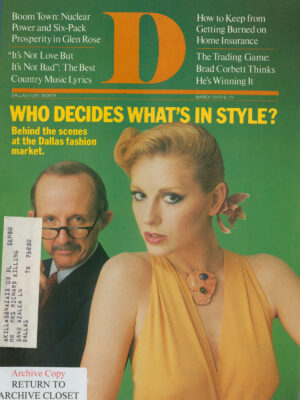Sylvia Plath put an end to her literary career with her suicide in 1963, a fact that has undoubtedly contributed to her overblown reputation. People tend to snoop through her works as detectives, looking for evidence about a life gone wrong, about victimization, hopelessness, and horror. And they find it, for Plath’s work is characterized by an intense preoccupation with her own abnormal impulses and fears. Under psychiatric care much of her adult life, she came to understand her condition as an illness resulting from the death of her father, whom she both hated and adored. Her response was a bitterness that manifested itself in some of the most intense language in all of modern poetry. You can almost hear the psychoanalyst droning in the background, “That’s it. Let it all out – the hatred, the morbid self-pity, the death-wish. As soon as you say it all, you’ll feel better.”
And she says it all, calling her father everything from vampire to Nazi, comparing herself to a victim of the Holocaust, shrieking that she will drive a stake through his heart, then mooning over the prospect of her own suicide. Her four volumes of poetry and her novel, The Bell Jar, suggest a spirit driven to madness by the intolerable burden of being a victim in a man’s world. Or so some feminists have maintained, for Plath is one of their poets, along with Anne Sexton, Doris Lessing, Adrienne Rich, and a few others.
Then came the letters-edited by her mother, who appended comments about Daddy Plath and perhaps revealed more than she intended to about her own contribution to Sylvia’s problems. In the letters we discover that, far from being a budding feminist, the young Sylvia was a more likely candidate for Sweetheart of Sigma Chi. She was mad about stylish clothes, good-looking boys, and being “In” with the right crowd. Though she was serious about her writing from her freshman year on, she was pretty enough to become a model and to exploit her physical advantages in articles-with-photos for the slick magazines. While studying and modeling in England, she fell in love with British poet/playwright Ted Hughes, married him, bore him two children, and allowed her career to be subordinated to his. Or so the letters suggest.
Now Hughes presents us with this new volume, Johnny Panic and the Bible of Dreams (Harper & Row, $10), a collection of short stories, familiar essays, prose fragments, and diary excerpts. In his introduction he is very careful to tell us that Plath’s reputation rests largely on poems written during the last six months of her life, and that these works of prose are from an earlier period, when she was just beginning to find herself as a literary artist. He also says that he has omitted much of the material from the notebooks because her comments about her friends were often cruel and unfair. What Hughes does publish is brutally revealing. Putting aside the stories for a moment, what her notebooks and most of the sketches suggest is a shallow mind fed by a hard, selfish little heart. Everyone else was dull, menacing, or morally deficient. People an-noyed her. Even their illnesses and deaths were an affront to her delicate sensibilities.Plath reports on a harmless group of beekeepers as if it were a secret cult, hostile and threatening to its own mem-bers. When a family named Smith tries to befriend her and her husband, she dismisses the act as a brash and malicious in-vasion of her privacy and hy-pothesizes that the Smiths’ daughter is plotting to seduce Hughes. And, in a lengthy sec-tion, she reports on the death of another “friend,” Percy B., whom she has predictably come to despise. When he dies she must view the remains, which she describes with mor-bid fascination: “His eyes i showed through partially open lids like dissolved soaps or clot-ted pus. I was very sick at this and had a bad migraine over my left eye for the rest of the day. The end, even of so marginal a man, a horror.”
In this grotesque imagery Sylvia Plath is at her best. Her poems abound with such details, precisely and imaginatively phrased. Yet you have to wonder at her dismissal of another human being as “marginal.” How is he marginal? You look back over the sketch to find out, but all you see is the author’s long-suffering soul, which remains in the foreground. Percy is seen only in the effect he has on Plath, whose headache is so precisely located and recorded.
This is a limitation of practically everything in Johnny Panic and the Bible of Dreams: Plath is so obsessively self-centered that nothing else exists for the reader. At the doorway of her own consciousness her talent comes to a dead halt, unable to escape to the world at large.
She worried about this limitation, was terrified and ashamed that she kept returning to her own interior landscape for the subject matter of her fiction and poetry. “I shall perish if I can write about no one but myself,” she wrote in her notebooks – not once, Hughes tells us, but over and over again.
The title story and another, “The Fifteen-Dollar Eagle,” reveal Plath’s fictional talents at their best. They have the same intensely lyrical quality that her late poems reveal; though they lack a certain scope in plot and character development, they are better than Hughes leads us to believe in his introduction. “Johnny Panic and the Bible of Dreams” concerns a girl who goes mad while poring over mental patients’ case histories (some of Plath’s own favorite reading matter); and “The Fifteen-Dollar Eagle” is a bizarre portrait of a tattoo artist, drawn by a queasy feminine observer. Both reveal the author’s preoccupation with the bizarre and perverse elements in her own psyche. Where she departs from this territory, she becomes imitative or banal, a writer who has not yet discovered her true voice.
And what was that voice? At best the agonizing cry of a damned soul, at worst no more than a self-pitying whine. But always fascinating to those who share her morbid curiosity, a company in which I include myself.
Barbara Jordan sings a different song in Barbara Jordan: A Self-Portrait (Doubleday, $9.95). From the beginning of her extraordinary life she was urged to renounce the conventional role of housewife and mother, first by her proud and self-sufficient grandfather, later by some inner voice. In this account, we follow her as she becomes a debater, wins a number of important honors, and goes to law school in Boston, where she succeeds under the most adverse circumstances. She returns to Houston to practice law, drifts into politics, runs for office twice without being elected, and then turns defeat into a series of victories that culminates in election to the United States Congress and a rousing keynote address before the national Democratic convention in 1976.
Jordan and her co-author, Shelby Hearon, take note of all the adversities a black woman faces in attempting to purto become supportive of Barbara Jordan and not just to tolerate her. Of course it entered my mind that in testifying for John Connally that would certainly give me chits with them as somebody who was fair and open and not just locked into a knee-jerk position. And that would not hurt at all. I would be the person they could turn to when they were feeling guilty about anything they had done to others, and be redeemed.”
Small wonder that she is one of the few black legislators at any level of government who has been able to push through significant laws in support of her constituency.
Ideologues, of course, will continue to say that Connally should have been burned at the stake. In the meantime, Barbara Jordan is waiting down in Austin to collect her chits, more than likely in behalf of blacks or women or both.
And this brings up one of the few defeats in this interesting portrait. For some reason, she is unwilling or unable to explain why she chose to leave her seat in the House of Representatives, leaving the impression that she simply tired of the rat-race and decided to move on to some new venture, as yet undefined. Such an explanation is difficult to accept, since a great deal of unfinished business remains before the Congress. Is she saying that she quit because she was tired of drudgery and inconvenience? She has endured greater discomfort with grace and patience. Is she waiting for the right moment to announce plans that have already been formulated? She suggests to the contrary. Is she gravely ill, as recent newspaper accounts maintained? If so, then why bother to call a press conference and issue a categorical denial? Something is wrong with this segment of her narrative, a failure to be completely open, for whatever reasons.
One more complaint: Describing her initial years in Washington, Jordan says, “Andy Young and I were the first blacks elected to Congress from the South since Reconstruction.” This statement is simply untrue. As many blacks served in Congress during the years immediately following Reconstruction as did during the period of Federal occupation. In fact, with a single exception, every Congress from 1869 to 1901 had at least one black representing a southern state.
Strange? Not really. The trouble began not with the end of Reconstruction but with the rise of Populism around the turn of the century. Then, when the South was economically strapped, most of the Jim Crow laws were passed – over the objections of old-style conservatives not unlike Barbara Jordan’s mentor, Dorsey Hardeman.
Related Articles

Business
New CEOs Appointed at Texas Women’s Foundation and Dallas Area Habitat for Humanity
Plus: Former OpTic Gaming CEO Adam Rymer finds new e-sports post, Lynn Pinker Hurst & Schwegmann hires former Mary Kay chief legal officer, and more.
By Celie Price and Layten Praytor

Arts & Entertainment
Dallas College is Celebrating Student Work for Arts Month
The school will be providing students from a variety of programs a platform to share their work during its inaugural Design Week and a photography showcase at the Hilton Anatole.
By Austin Zook

Basketball
A Review of Some of the Shoes (And Performances) in Mavs-Clippers Game 1
An excuse to work out some feelings.
By Zac Crain


